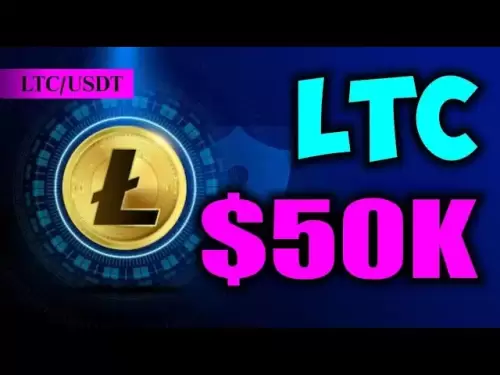-
 Bitcoin
Bitcoin $118300
0.35% -
 Ethereum
Ethereum $3758
6.10% -
 XRP
XRP $3.508
2.11% -
 Tether USDt
Tether USDt $1.000
-0.02% -
 BNB
BNB $751.6
3.09% -
 Solana
Solana $180.8
2.32% -
 USDC
USDC $0.9999
0.01% -
 Dogecoin
Dogecoin $0.2642
9.89% -
 Cardano
Cardano $0.8651
5.36% -
 TRON
TRON $0.3181
-0.30% -
 Hyperliquid
Hyperliquid $46.81
4.94% -
 Stellar
Stellar $0.4700
0.96% -
 Sui
Sui $3.938
4.38% -
 Chainlink
Chainlink $19.44
7.87% -
 Hedera
Hedera $0.2781
3.87% -
 Bitcoin Cash
Bitcoin Cash $548.9
8.91% -
 Avalanche
Avalanche $25.20
6.19% -
 Shiba Inu
Shiba Inu $0.00001540
5.34% -
 Litecoin
Litecoin $118.3
16.74% -
 UNUS SED LEO
UNUS SED LEO $8.978
-0.15% -
 Toncoin
Toncoin $3.295
4.26% -
 Polkadot
Polkadot $4.516
6.76% -
 Uniswap
Uniswap $10.66
6.62% -
 Ethena USDe
Ethena USDe $1.001
0.00% -
 Monero
Monero $327.2
0.14% -
 Pepe
Pepe $0.00001410
8.54% -
 Bitget Token
Bitget Token $4.955
1.73% -
 Dai
Dai $0.9998
-0.01% -
 Aave
Aave $328.8
4.63% -
 Bittensor
Bittensor $430.8
5.40%
How to avoid crypto scams
Stay vigilant: Crypto scams thrive on urgency and false promises, so always verify sources, secure private keys, and research projects thoroughly before investing.
Jul 15, 2025 at 10:14 am
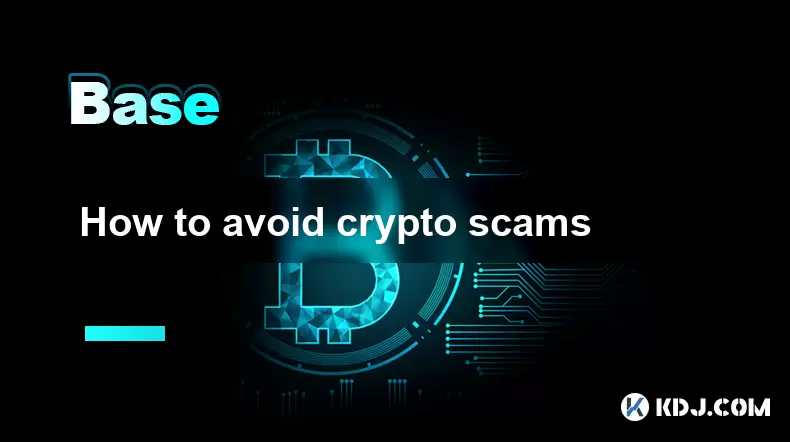
Understanding the Landscape of Crypto Scams
The cryptocurrency ecosystem, while offering immense potential for financial innovation and decentralized transactions, is also a hotbed for various types of scams and frauds. From phishing attempts to fake initial coin offerings (ICOs), users must be aware of the common tactics employed by scammers. Understanding how these scams operate is the first step in safeguarding your digital assets. Many individuals lose substantial amounts due to a lack of awareness or failure to verify sources.
Phishing attacks are among the most prevalent forms of crypto-related fraud. These often involve fraudulent emails or websites designed to mimic legitimate platforms like exchanges or wallet services. Users who enter their login credentials or private keys on these sites risk losing access to their funds permanently.
Recognizing Red Flags in Investment Opportunities
One of the most effective ways to avoid falling victim to scams is by learning to recognize red flags in investment opportunities. Legitimate cryptocurrency projects do not promise guaranteed returns or unusually high yields with minimal risk. If an opportunity seems too good to be true, it likely is.
- Unrealistic profit promises: Any project that guarantees exponential growth or daily returns should raise suspicion.
- Lack of transparency: Projects that hide details about their team members, technology, or roadmap are suspicious.
- Pressure tactics: Scammers often create urgency to push victims into making hasty decisions without proper research.
Before investing in any token or platform, perform thorough due diligence. Check official forums, social media channels, and review independent analyses from trusted sources.
Securing Your Wallet and Private Keys
Your private keys are the gateway to your cryptocurrency holdings. If someone gains access to them, they can drain your wallet instantly. Therefore, protecting your private keys should be a top priority.
- Use hardware wallets: Cold storage solutions like Ledger or Trezor offer enhanced security compared to online wallets.
- Avoid sharing keys: Never disclose your private keys to anyone, including customer support agents who may claim they need them for verification.
- Enable two-factor authentication (2FA): This adds an extra layer of protection to your accounts on exchanges and wallets.
Regularly update your software and firmware to ensure you're protected against known vulnerabilities. Also, consider backing up your recovery phrases in secure physical locations.
Verifying Authenticity of Platforms and Exchanges
With the proliferation of crypto exchanges and platforms, it's crucial to ensure you’re using a reputable service. Many fraudulent exchanges have emerged over the years, luring users with low fees or exclusive tokens before disappearing with user funds.
- Check licensing and regulation: Reputable exchanges often have regulatory compliance and publish audit reports.
- Review user feedback: Look at community forums, Reddit threads, and review sites for signs of complaints or unresolved issues.
- Verify website authenticity: Always double-check URLs to avoid visiting cloned versions of real exchange websites.
Never click on unsolicited links claiming to lead to exchanges or wallet services. Always navigate directly through bookmarks or official search results.
Staying Informed Through Trusted Channels
In the fast-evolving world of cryptocurrencies, staying informed is key to avoiding scams. Misinformation spreads quickly, especially during market volatility or major announcements.
- Follow official project communication: Stick to verified Twitter accounts, Telegram groups, and whitepapers published by development teams.
- Subscribe to credible news outlets: Platforms like Coindesk, The Block, and Cointelegraph provide reliable updates and analysis.
- Join knowledgeable communities: Engaging with experienced traders and developers on Discord or specialized forums can help identify potential threats early.
Avoid relying solely on information shared in unverified groups or paid promotional content. Always cross-reference claims with multiple trusted sources before taking action.
Frequently Asked Questions
What should I do if I’ve already fallen victim to a crypto scam?
If you've sent funds to a scam wallet or lost access to your account, immediately stop all further transactions. Report the incident to local authorities and file a complaint with cybercrime units. You may also contact blockchain analytics firms like Chainalysis or CipherTrace for assistance in tracking stolen funds, though recovery is often difficult.
Are there tools available to check if a token or wallet address is associated with scams?
Yes, several blockchain explorers and reputation tools can help verify addresses. Platforms like Etherscan allow you to inspect transaction histories. Tools like Chainabuse and Scam Sniffer maintain databases of known scam addresses and malicious contracts.
Can antivirus or anti-malware programs protect me from crypto-related phishing?
Some advanced cybersecurity software includes features to detect phishing attempts and block malicious websites. Programs like Bitdefender, Norton, and Kaspersky offer protections against crypto-specific threats, but they are not foolproof. Always combine such tools with personal vigilance.
How can I tell if a crypto giveaway is a scam?
Legitimate crypto giveaways usually come from well-known companies or influencers and are announced through verified channels. Scammers often impersonate popular figures and use urgent language like “limited time” or “first come, first served.” Always verify the source independently before participating.
Disclaimer:info@kdj.com
The information provided is not trading advice. kdj.com does not assume any responsibility for any investments made based on the information provided in this article. Cryptocurrencies are highly volatile and it is highly recommended that you invest with caution after thorough research!
If you believe that the content used on this website infringes your copyright, please contact us immediately (info@kdj.com) and we will delete it promptly.
- Iron Maiden: Music Legends Celebrate 50 Years with Royal Mint Coin
- 2025-07-21 00:30:13
- BlockDAG, TIA, LTC: Unveiling the Latest Crypto Buzz
- 2025-07-21 00:50:12
- Ethereum Layer-2 Meme Coins: Little Pepe's Big Leap?
- 2025-07-21 00:30:13
- MoonBull, Crypto, and BOME Gains: Riding the Meme Coin Wave to 100x?
- 2025-07-21 00:50:12
- Bitcoin, ETH, and the Trader Target: Decoding the Crypto Landscape
- 2025-07-21 01:10:14
- Solana's TVL Growth: Riding the Cryptocurrency Wave
- 2025-07-21 01:10:14
Related knowledge
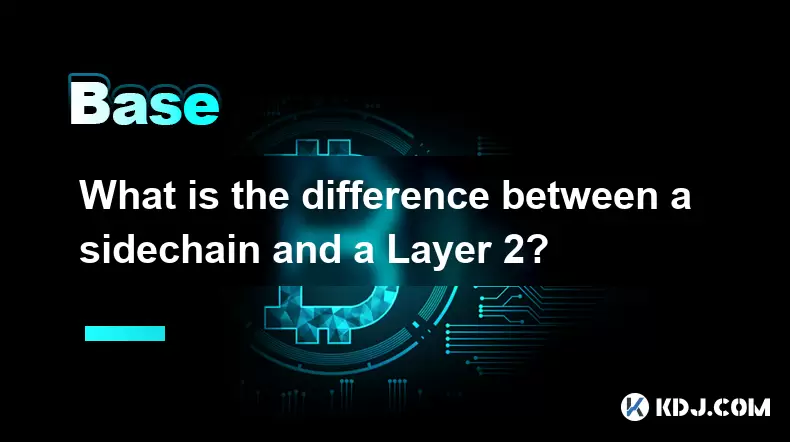
What is the difference between a sidechain and a Layer 2?
Jul 20,2025 at 11:35pm
Understanding the Concept of SidechainsA sidechain is a separate blockchain that runs parallel to the main blockchain, typically the mainnet of a cryp...

What is the Inter-Blockchain Communication Protocol (IBC)?
Jul 19,2025 at 10:43am
Understanding the Inter-Blockchain Communication Protocol (IBC)The Inter-Blockchain Communication Protocol (IBC) is a cross-chain communication protoc...
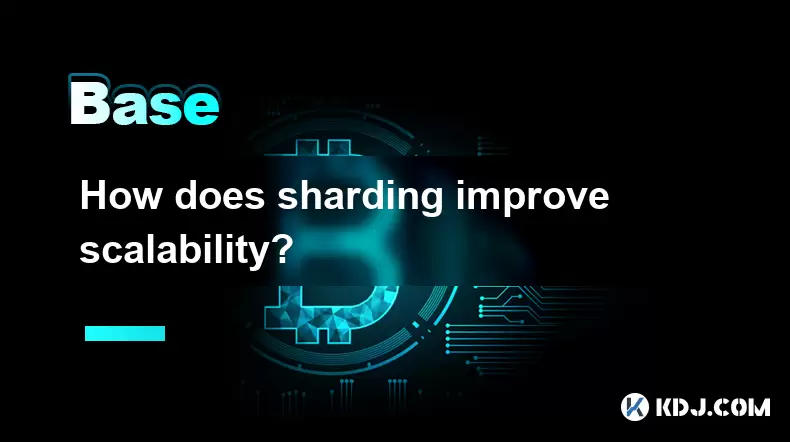
How does sharding improve scalability?
Jul 20,2025 at 01:21am
Understanding Sharding in BlockchainSharding is a database partitioning technique that is increasingly being adopted in blockchain technology to enhan...
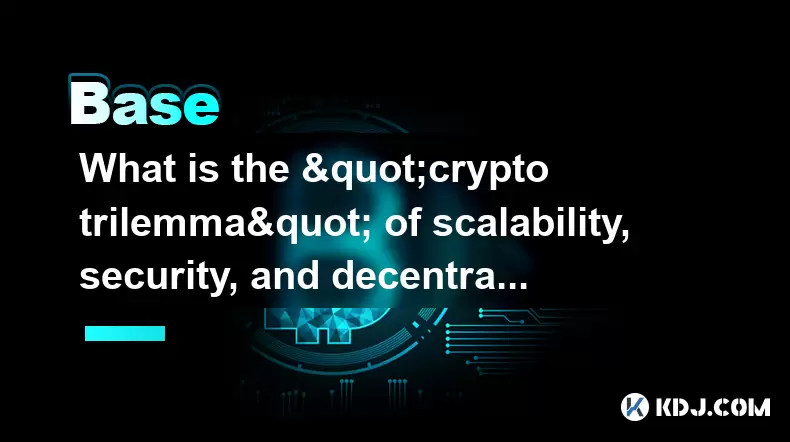
What is the "crypto trilemma" of scalability, security, and decentralization?
Jul 19,2025 at 06:28pm
Understanding the Concept of the Crypto TrilemmaThe crypto trilemma refers to the challenge of simultaneously achieving scalability, security, and dec...
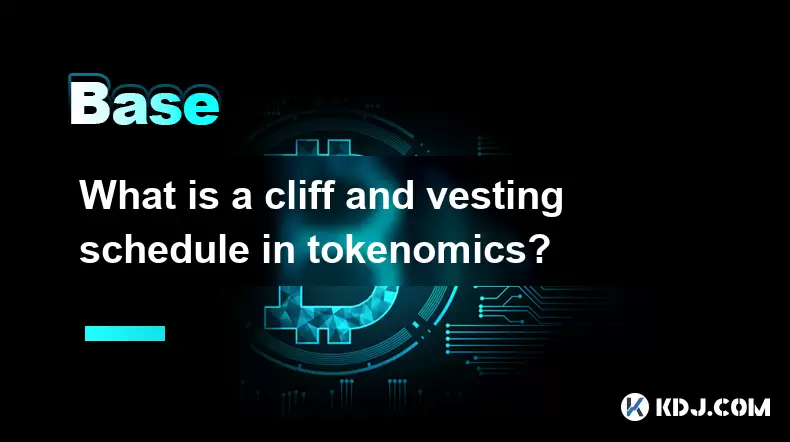
What is a cliff and vesting schedule in tokenomics?
Jul 20,2025 at 10:28am
What Does a Cliff Mean in Tokenomics?In tokenomics, a cliff refers to a specific period during which token holders are not allowed to access or transf...
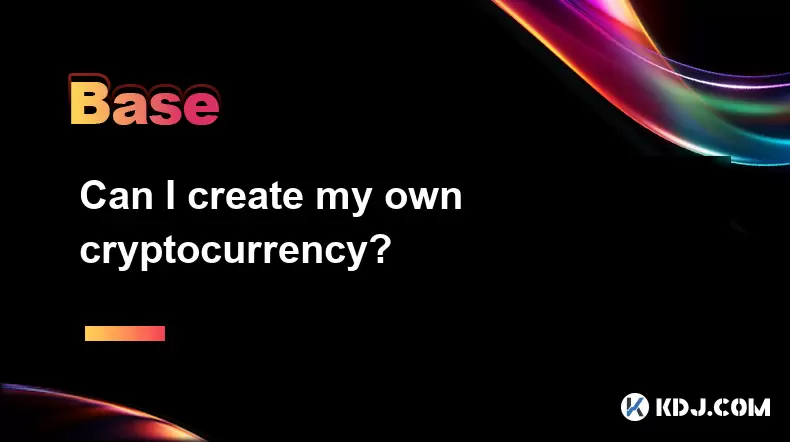
Can I create my own cryptocurrency?
Jul 20,2025 at 11:49pm
Understanding the Basics of Creating a CryptocurrencyYes, you can create your own cryptocurrency, but it involves a combination of technical knowledge...

What is the difference between a sidechain and a Layer 2?
Jul 20,2025 at 11:35pm
Understanding the Concept of SidechainsA sidechain is a separate blockchain that runs parallel to the main blockchain, typically the mainnet of a cryp...

What is the Inter-Blockchain Communication Protocol (IBC)?
Jul 19,2025 at 10:43am
Understanding the Inter-Blockchain Communication Protocol (IBC)The Inter-Blockchain Communication Protocol (IBC) is a cross-chain communication protoc...

How does sharding improve scalability?
Jul 20,2025 at 01:21am
Understanding Sharding in BlockchainSharding is a database partitioning technique that is increasingly being adopted in blockchain technology to enhan...

What is the "crypto trilemma" of scalability, security, and decentralization?
Jul 19,2025 at 06:28pm
Understanding the Concept of the Crypto TrilemmaThe crypto trilemma refers to the challenge of simultaneously achieving scalability, security, and dec...

What is a cliff and vesting schedule in tokenomics?
Jul 20,2025 at 10:28am
What Does a Cliff Mean in Tokenomics?In tokenomics, a cliff refers to a specific period during which token holders are not allowed to access or transf...

Can I create my own cryptocurrency?
Jul 20,2025 at 11:49pm
Understanding the Basics of Creating a CryptocurrencyYes, you can create your own cryptocurrency, but it involves a combination of technical knowledge...
See all articles

























